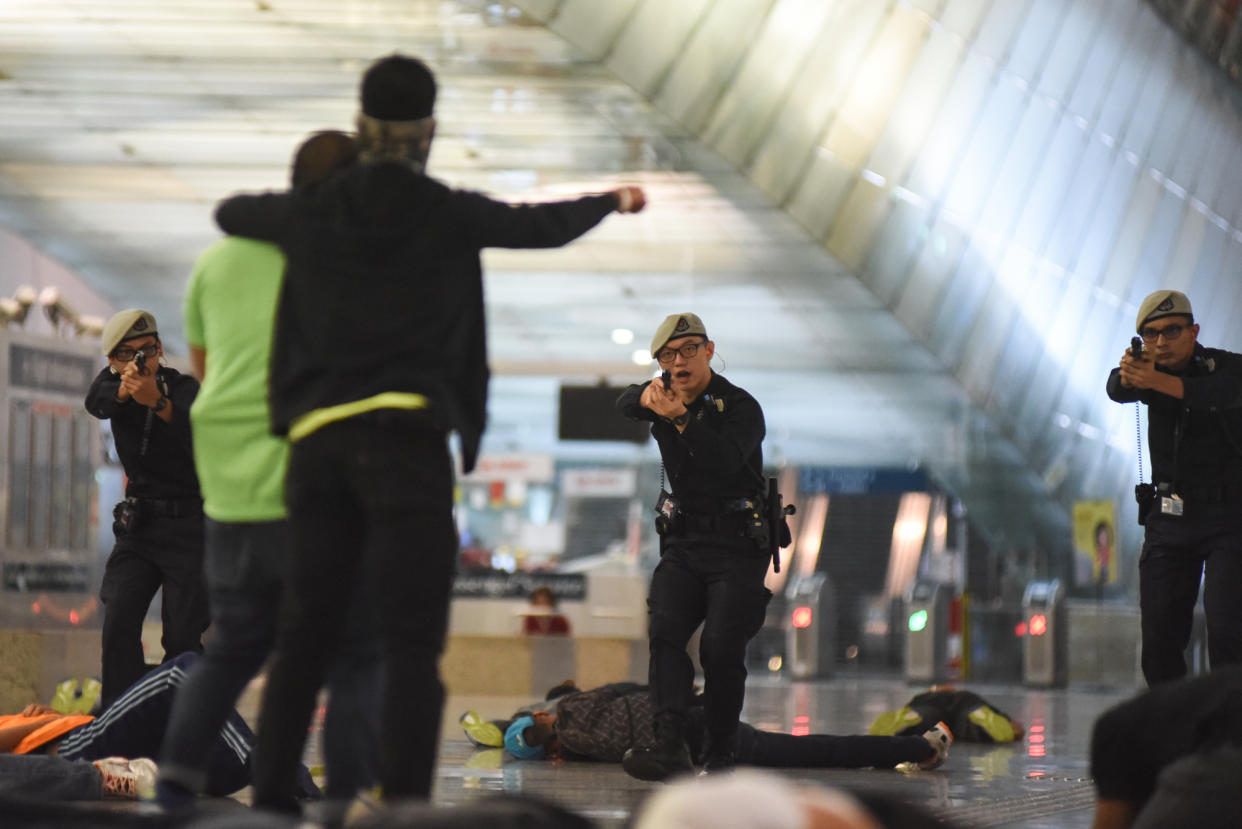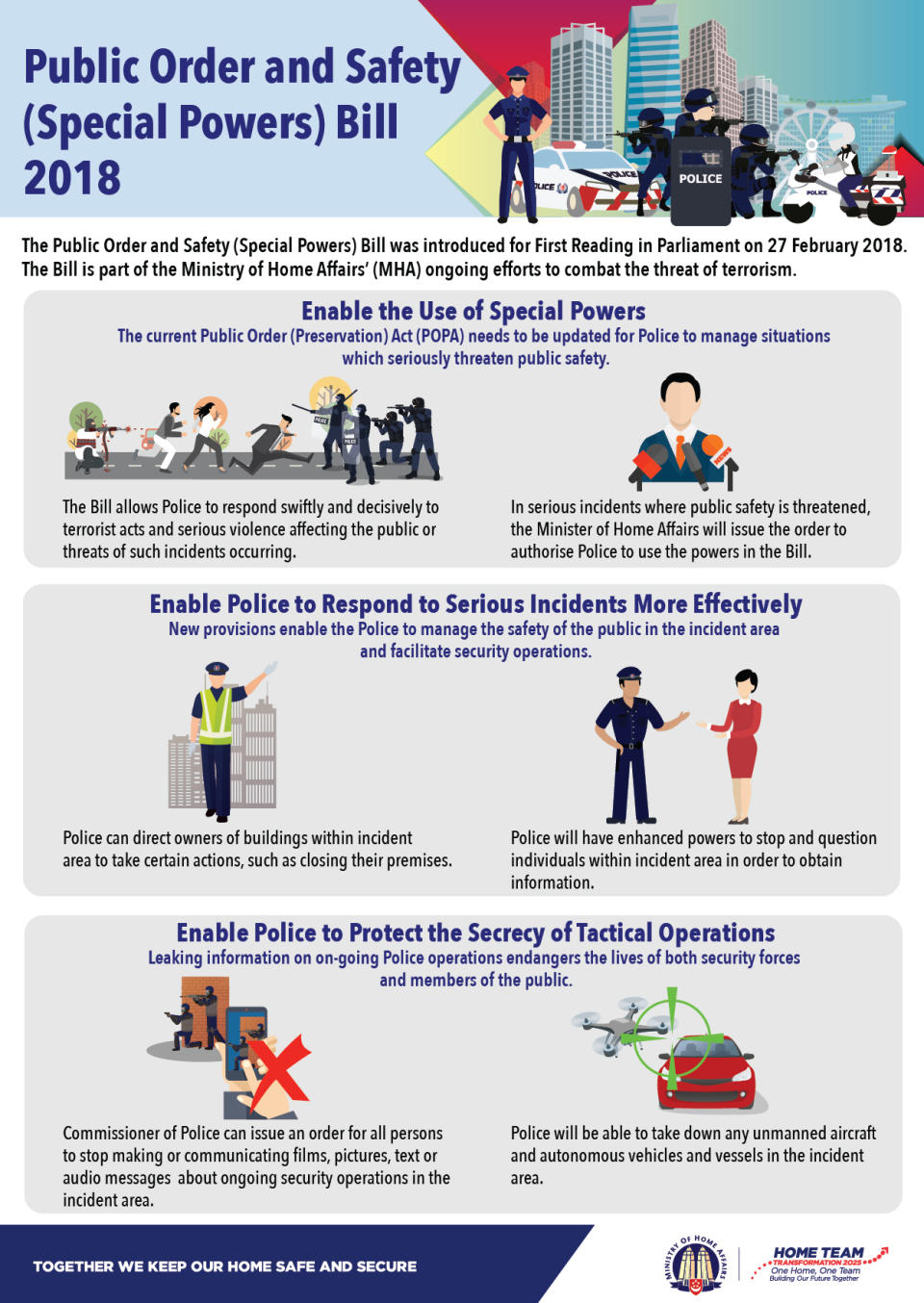Communications stop order for serious incidents 'not an information blackout': Josephine Teo

The communications stop order (CSO) provided for in the Public Order and Safety (Special Powers) Act (POSSPA) is not a complete information blackout as some have portrayed it, said Second Minster for Home Affairs Josephine Teo in Parliament on Wednesday (21 March).
“It is location specific. The CSO will only apply to coverage of the target area. It is limited in duration. After the security operations are over, the CSO will be lifted,” said Teo during the POSSPA Bill’s second reading. The Bill was later passed into law.
Once imposed, a CSO would require all persons in an incident area to stop making or communicating films or pictures of the area, as well as to stop transmitting text or audio messages about ongoing security operations, said the Ministry of Home Affairs (MHA) in a press release last month.
The CSO will also empower the police to stop people from filming an incident regardless of their intentions to transmit the information. This is because the police would not have the time to determine the intentions of those recording the event, said Teo.
“The more important question is this: When lives are at stake, should we hope for best or must we assume the worse, that someone somewhere had malicious intent?” she asked.
Teo said that, when implemented, the police would publicise the CSO and state clearly its duration and the physical boundaries within which it is applicable. Anyone who breaches the order would face up to two years’ jail, or a maximum fine of $20,000, or both.
The 49-year-old MP for Bishan Toa Payoh GRC noted that the CSO would not be applied to civilians in hostage situations who are informing loved ones of their own predicaments, but to stop “irresponsible communication of ongoing communication”, which may endanger lives of those involved in the operations.
With regard to media coverage of serious incidents, Teo said that “the police will allow selected media access to incident locations so that the events can still be recorded for subsequent use”. She added that editors of major local media outlets and several foreign media outlets have been engaged on this matter.

According to the MHA release, the POSSPA Bill provides a number of necessary updates to the Public Order (Preservation) Act (POPA) which, was enacted in 1958 as a means to address large-scale communal riots.
For the POSSPA to come into effect, it has to be first activated by the Home Affairs Minister, following which the separate special powers would have to be individually unlocked as necessary by the Commissioner of Police.
The CSO is one of the new tools under the POSSPA, which include allowing the police to take down unmanned aircraft and autonomous vehicles such as drones and to direct the actions of the owners of premises within an incident area.
The push for its implementation was spurred by cases in other countries where the live broadcast or transmission of information compromised police operations, placing officers and civilians at risk, said Teo.
“We hope we will never have to issue a CSO. If ever there a was a need, half-measures would not cut it,” she noted.
Related stories:
Singapore proposes measure to bar communications from terror attack sites



